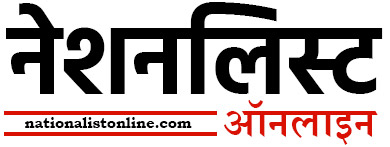VINAY PANDEY
Why should India particularly and the rest of the world be concerned about the developments in Balochistan? The Balochistan region occupies 40 per cent of Pakistan’s landmass. It is the only mineral-rich area of Pakistan, having coal and gas reserves. Despite this, it is the most backward region of Pakistan, having just seven per cent of the country’s population. Basic amenities in education, healthcare etc are in short supply.
It is only now, with Prime Minister taking a strong stand on the issue, that New Delhi has taken the matter into the international arena. The people of Balochistan are naturally happy about the development and have begun looking to India,whom they always considered as a friend, with deep respect.
But the prominent reason of Balochistan is in the news in recent months is the atrocities being committed on the Baloch people. Their men are being kidnapped, killed; their women raped. All of this is taking place under the directions of the Pakistani state, or more specifically, the Pakistani Army.
According to journalist Ahmed Rashid, in 2014, many hundreds, even thousands, of people disappeared in Balochistan. Further, international voices for the Balochs claimed that 18,000 Balochs were missing by 2014, of whom more than 2,000 were killed. It is strange that, despite such massive human rights violations in the region, not just the world community but also India had been silent on the happenings. It is only now, with Prime Minister taking a strong stand on the issue, that New Delhi has taken the matter into the international arena. The people of Balochistan are naturally happy about the development and have begun looking to India,whom they always considered as a friend, with deep respect.

The international community makes a big hue and cry when something tragic happens in Palestine But it remains oblivious to the plight of the people in Balochistan. No resolution is ever passed in the United Nations or the European Council of Human Rights. Even a simple condemnation is rare in the case of Balochistan. Why has been such a double standard?
It appears that responses to human rights violations depend on the status of the victim. If the victim belongs to a particular region or religion, then all criticisms, all resolutions are mandatory. Taking a stand then is essential for proving the secular credentials of the person. The same parameter has been followed by the Indian media by and large; other watchdogs too have done the same.
But after the Prime Ministers speech on August 15, all of this has changed. India has now taken an aggressive stand for the betterment of the Baloch people and to expose Pakistan’s atrocities before the world.
There are reports that Baloch leader Brahamdagh Bugti has sought political asylum in India. Another Baloch leader Naela Quadri is now openly pleading for the Indian Government’s help in their movement.
The reason for their increasing dependency on India is obvious. They know that now India has a leader who has vision, the will-power, and more importantly, the support of a majority of Indians. In international relations, a leader’s credibility is the most important factor.
So, this is the time to take a firm stand in favour of the Baloch people, to take a stand for the dignity of Baloch women and to take a stand against the atrocities committed by Pakistan Army. India, being a major power in the region, cannot shirk its responsibility. It must present Balochistan’s case before he United Naions more forcefully from here on.
India must take all interested parties in board, whether it is Afghanistan or Iran. Fortunately, it is on very good terms with both these countries. The move is an important tool for india to counter the Pakistani stand on various long-standing issues and its state policy to support terrorism.
(The writer is currently working in the Ministry of Defence)
